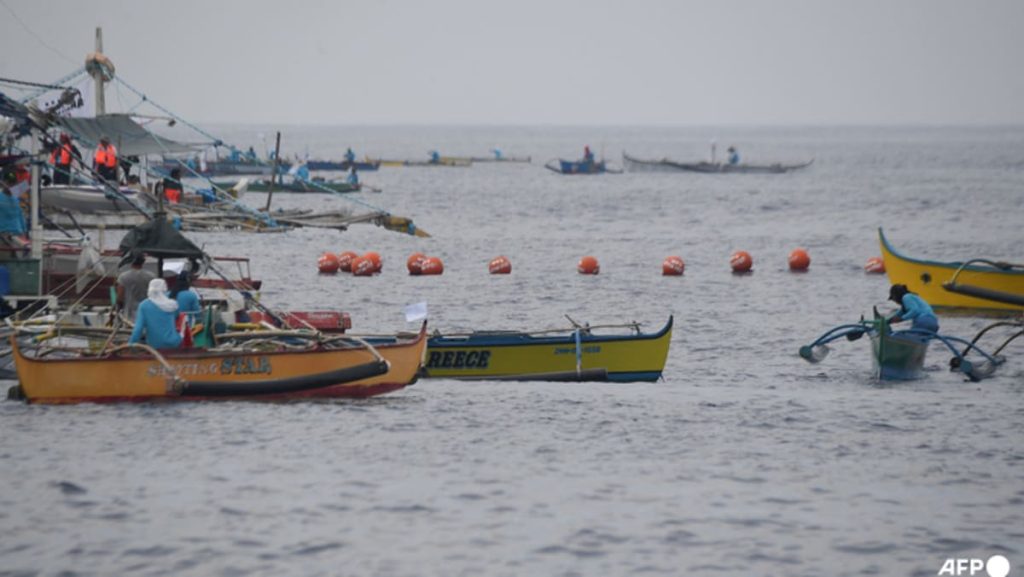The Filipino aid convoy, consisting of four wooden-hulled fishing boats and a coast guard escort, was tracked by a nearby China Coast Guard vessel while located about 108km southeast of Scarborough Shoal at 6am. Despite China’s attempts to block their passage, the convoy successfully breached the blockade and reached Bajo de Masinloc to provide support to Filipino fishers with essential supplies. The head of the coalition, Rafaela David, mentioned in a statement the importance of their mission in facing off against the illegal blockade and assisting their fellow fishers in need.
The Scarborough Shoal has been a source of tension and potential conflict since Beijing’s seizure of the territory from Manila back in 2012. This fish-rich reef is located approximately 240km west of the Philippines’ main island of Luzon and nearly 900km from Hainan, the nearest major Chinese land mass. China’s assertion of almost the entire South China Sea, despite rival claims from the Philippines and other neighboring countries, has been challenged by an international ruling that deems China’s claims as lacking a legal basis. In pursuit of its territorial claims, Beijing has deployed coast guard and other vessels to patrol the South China Sea, and has also transformed several reefs into artificial islands that have been militarized.
The aid convoy’s successful breach of China’s blockade near the Scarborough Shoal highlights the ongoing tensions and territorial disputes in the South China Sea. Despite China’s claims and assertive actions in the region, Filipino fishers and their supporters continue to challenge these efforts to assert control over the disputed waters. The convoy’s mission to provide essential supplies to fishers in need demonstrates the community’s resilience and determination in the face of these challenges.
China’s actions in the South China Sea have raised concerns among neighboring countries and the international community regarding freedom of navigation and adherence to international law. The presence of Chinese coast guard and military vessels in the area, as well as the militarization of artificial islands, has escalated tensions and raised the risk of potential conflicts. The ongoing disputes over territorial claims in the South China Sea underscore the complex geopolitical dynamics and security challenges in the region.
The Philippines’ efforts to support its fishers and challenge China’s blockade near the Scarborough Shoal represent a significant step in the ongoing dispute over territorial claims in the South China Sea. By successfully breaching the blockade and reaching Bajo de Masinloc, the aid convoy has demonstrated the resilience and determination of Filipino fishers and their supporters in facing off against China’s assertive actions in the region. The convoy’s mission to provide essential supplies to fishers in need serves as a symbolic and practical response to China’s efforts to control the waters near the Scarborough Shoal and assert dominance in the South China Sea.
In conclusion, the Filipino aid convoy’s successful breach of China’s blockade near the Scarborough Shoal highlights the ongoing tensions and territorial disputes in the South China Sea. The convoy’s mission to support Filipino fishers in need and challenge China’s assertive actions underscores the resilience and determination of the Filipino community in the face of these challenges. The presence of Chinese vessels and artificial islands in the region has raised concerns about freedom of navigation and adherence to international law, highlighting the complex geopolitical dynamics and security challenges in the South China Sea.


